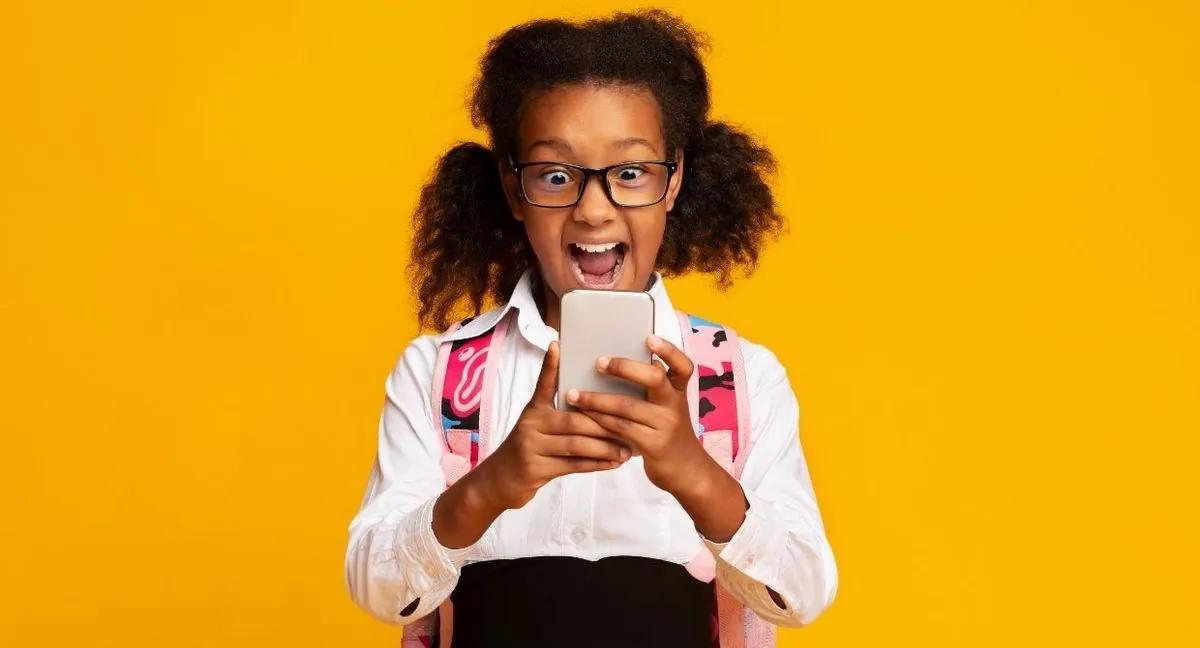The digital landscape has undergone a significant transformation since Steve Jobs unveiled the iPhone in 2007. In the span of 17 years, smartphones have become ubiquitous, reshaping various aspects of daily life. However, this technological revolution has raised concerns, particularly regarding its impact on children.
Recent data indicates a notable increase in smartphone ownership among young children. Currently, 25% of children aged 3 to 7 possess their own devices, up from 20% in the previous year. This trend has prompted researchers to investigate the potential consequences of early smartphone use.
Studies have revealed that excessive smartphone use can negatively affect children's well-being. Researchers have found links between smartphone overuse and decreased attention spans, sleep disturbances, and increased rates of anxiety and depression in young users. The term "nomophobia," referring to the fear of being without a mobile phone, has even entered the lexicon of mental health professionals.
In educational settings, smartphones have been observed to impact concentration levels, academic performance, and social behavior. Some educational institutions have implemented complete bans on these devices, although government guidance on the matter has been criticized as inadequate.
In response to these concerns, telecommunications company EE has taken a notable stance. The firm is now advising parents of primary school-aged children to opt for "brick" phones instead of smartphones. These basic devices offer limited internet access and social media capabilities, potentially shielding children from some of the negative aspects associated with more advanced technology.
"We believe that providing children with simpler mobile devices can help maintain communication while minimizing potential risks associated with smartphone use."
This recommendation highlights the complexity of the issue, which extends beyond the scope of individual parental decisions or school policies. As the average global smartphone user spends approximately 3 hours and 15 minutes daily on their device, the challenge of limiting children's exposure becomes increasingly apparent.
Parents face a dilemma, as denying smartphones to their children may lead to social isolation if the majority of their peers have access to these devices. Some advocates have called for a complete ban on smartphone use for children, though this approach is considered extreme by others.
Interestingly, some tech industry executives have been known to limit their own children's access to technology, recognizing the potential drawbacks of early and excessive exposure. This practice aligns with the growing popularity of "digital detox" initiatives aimed at reducing smartphone dependence.
More than half of parents report regretting their decision to provide smartphones to their children. They cite concerns about diminished family engagement, disrupted sleep patterns, and reduced physical activity. The blue light emitted by smartphone screens has been shown to interfere with the body's natural sleep-wake cycle, potentially exacerbating these issues.
As the number of smartphone users worldwide surpasses 6.8 billion, it's clear that this technology will remain a significant part of modern life. However, the growing body of research on its effects on children suggests a need for a more nuanced approach to early smartphone use.
While adults may find it challenging to avoid the pervasive influence of modern technology, there is a growing consensus that children should be shielded from its most detrimental effects. Balancing the benefits of connectivity with the need to protect young minds remains a critical challenge for parents, educators, and policymakers alike.
